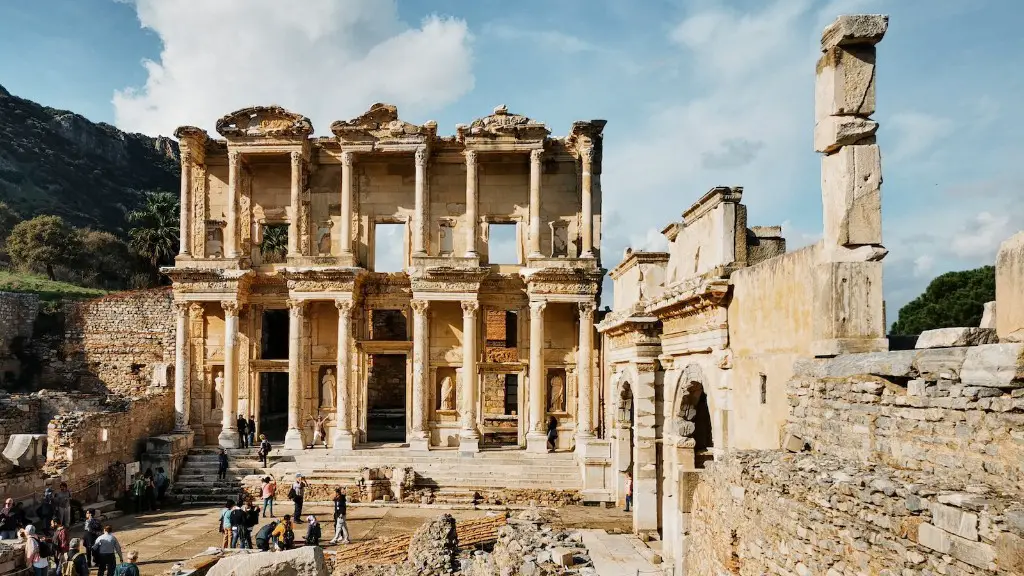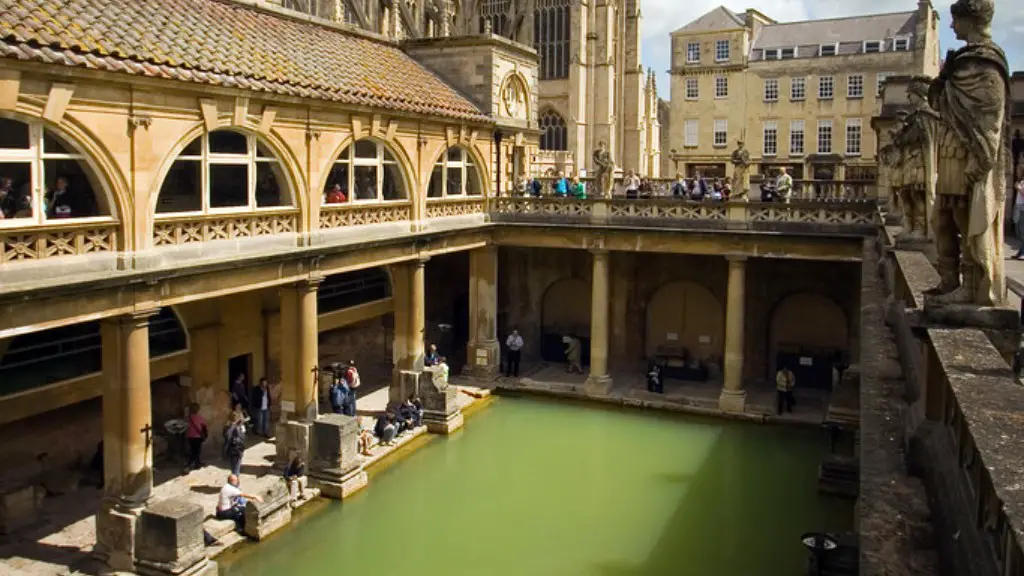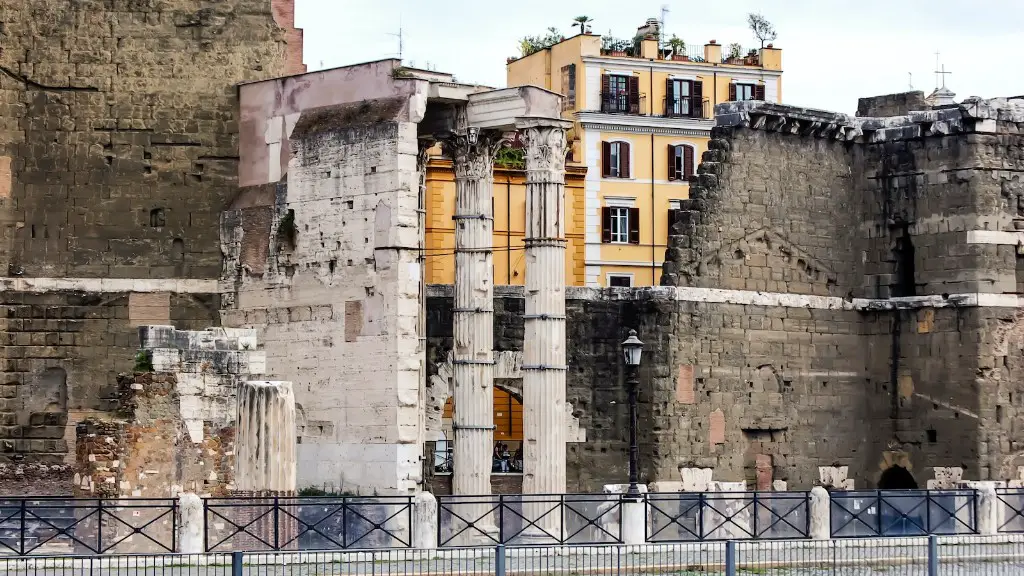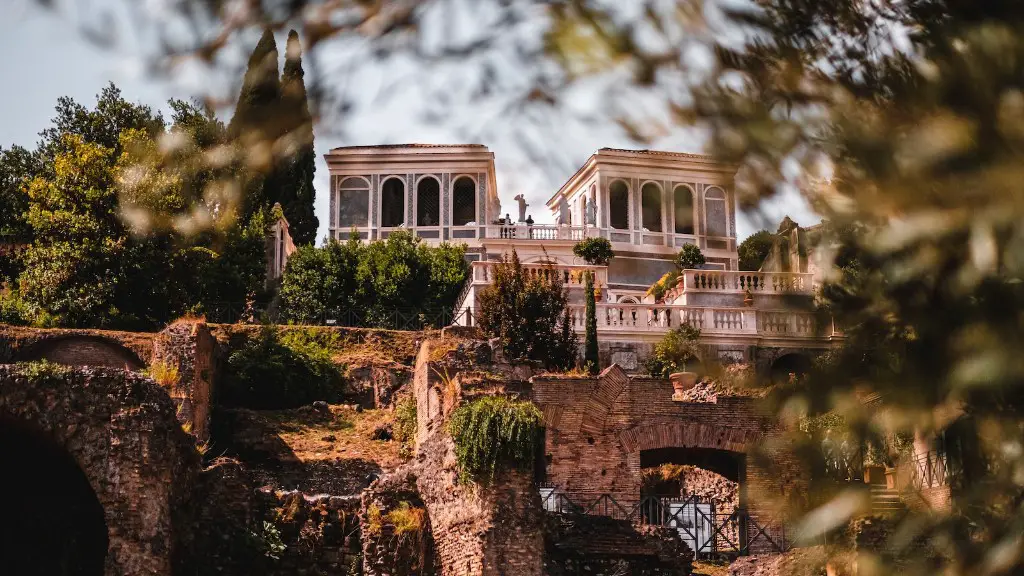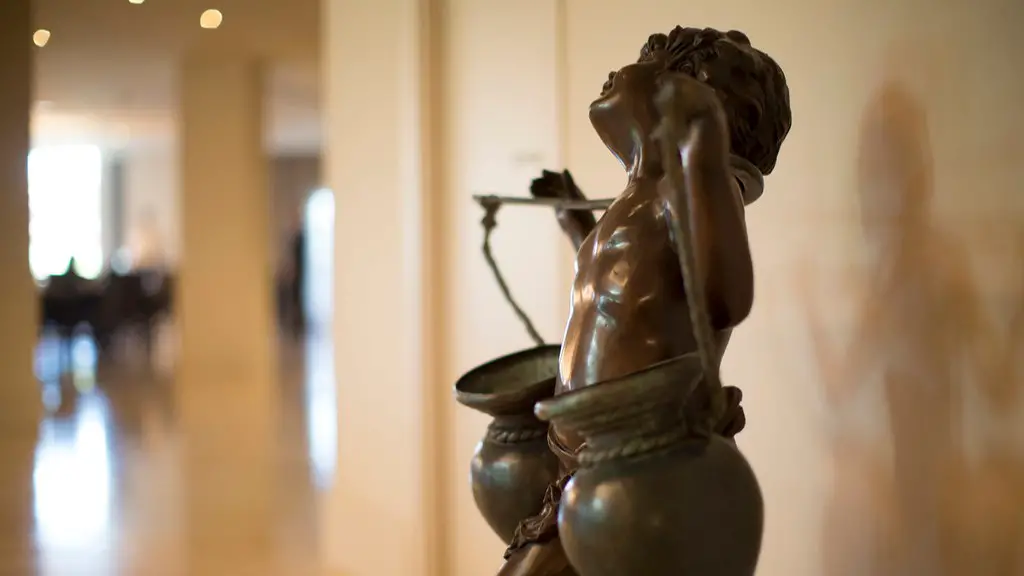The Roman Empire was an influential and powerful civilization that ruled much of Europe, the Near East and North Africa for over a thousand years. Its political, military, economic and cultural legacy remain important to this day. The ancient Romans were a remarkable people who have left an indelible mark on western civilization. The following are some of the characteristics of the ancient Romans:
Law and Order
The Roman legal system, known as the Law of the Twelve Tables, was one of the most important aspects of ancient Roman society. It was a set of laws that were recorded in Latin on twelve tablets. These laws were fair and applied equally to everyone regardless of class or rank. Roman law provided an orderly and structured framework for the way their society operated and was an important factor in establishing their dominance and ruling their vast empire.
The legal reforms of the emperor Justinian were also an important factor in the establishment of Roman law. His goal was to bring about a more just society and he accomplished this by providing legal protections for all citizens of the empire. He also unified the various laws of the various provinces, creating a common base of law throughout the empire.
Roman law also played an important role in the development of common law which is still used in many countries today. Roman law was the basis of English and American common law.
Military Strength and Engineering
The Roman Empire was renowned for its military might. Its professional, well-trained and well-disciplined troops were some of the finest in the ancient world. The Roman Army was organized into legions, each comprised of up to 5,000 men. It fought for almost a thousand years, conquering vast lands and maintaining its control over them. The military campaigns of the Roman Empire also saw major advances in military tactics and engineering.
The Romans were also renowned for their engineering skills. They were responsible for the building of massive public works such as aqueducts, bridges and roads. These innovations were essential for transportation, communication and commerce throughout the empire. The Romans were also famed for their construction of public buildings such as temples, theaters and public baths.
Writing and Literature
The Latin language was the language of the Roman Empire and was used by all throughout the empire. As a result, Roman literature was also written in Latin which had a major impact on western literature and culture. Latin was a beautiful and poetic language that lent itself to creativity and literature. Roman writers such as Virgil, Ovid and Cicero wrote great works that have been studied and admired for centuries.
Roman literature was also shaped by the social and political realities of the time. Roman writers wrote about religion, politics, philosophy and history as well as entertainment, often with an element of satire. Roman writers also focused on topics such as morality and virtue, which were important values in Roman society.
Cultural Influence
The influence of the ancient Romans can still be seen in modern society. Their language, Latin, has been the basis for many of the languages spoken in Europe and Latin-based words can be found in many modern languages. Roman law is still used in many countries today. Roman architecture is still studied and admired and the Colosseum, Pantheon and other Roman structures remain popular tourist attractions.
Roman culture has also had a major influence on art and music. Roman sculptures, mosaics and frescos are still studied and appreciated, while modern classical music draws heavily on the instruments and techniques of the Roman era. Roman literature has also been an enormous influence, with Roman writers such as Virgil, Ovid and Cicero continuing to influence literature and culture to this day.
Religion
Religion was an important part of ancient Roman life. The Romans were polytheistic, believing in multiple gods and goddesses who they believed controlled various aspects of the universe. They also believed in fate and a variety of other superstitions. Religious ceremonies played an important role in Roman society, with sacrifices and festivals – such as Saturnalia – being held throughout the year.
The Romans also adopted a variety of religions from other cultures. During the conquest of Greece and the Near East, they adopted the gods and goddesses of these cultures. As the Roman Empire expanded and came into contact with other civilizations, they adopted various religious practices and beliefs, which helped to shape Roman religion.
Religion was an important part of the Roman view of the world, and in many ways it continued to influence Western thought and culture. Religion was also important in helping to create a shared sense of identity in a diverse and multi-cultural society.
Government and Politics
The Roman Republic was a unique form of government that lasted from 509 BC until the establishment of the Roman Empire in 27 BC. It was a republican form of government that saw the power of government firmly held by the citizens of Rome. This system saw a blending of both political and military power, which helped to ensure that the people of Rome enjoyed both a strong government and strong military protection.
The government of the Roman Republic was characterized by class division and competition. Political offices were usually held by members of the patrician class, while military offices were dominated by the plebians. This system of government saw Roman politics become fiercely competitive, while still retaining a sense of shared purpose and identity.
The Roman Republic ultimately led to the establishment of the Roman Empire, which saw a shift in the way government was held. Power was now held by the Emperor, who ruled over the entire empire, although regional governors and senators still retained a degree of influence. Despite this change in the way government was held, Roman politics still remained competitive and were strongly driven by personal ambition.
Economy
The ancient Roman economy was mainly agrarian in nature, focused on the production of food and other agricultural products. However, as the empire expanded and its trade routes opened, the economy quickly became more complex and diverse. Trade, services and industry began to contribute significantly to the economy and the use of money became widespread.
The main products of the Roman Empire were the usual agrarian items such as grains, olives and wine, but they also began to produce a variety of manufactured goods, such as pottery, glass and jewelry. Mining and quarrying also became increasingly important, with the Romans extracting a variety of valuable minerals and resources from their mines.
The Roman economy also saw the development of banking and finance. Money lending became an important source of income and the Roman currency, the denarius, became the official currency of the empire. Money changers and bankers began to appear in Roman cities, providing loans and facilitating trade.
Education
Education was an important part of Roman society and the Roman government made sure that all its citizens received an education. Despite the fact that there were no formal schools, the education system was extensive, covering almost all aspects of life and culture from language, literature and arts to politics, military and engineering.
Education was also divided along social lines and was largely restricted to the upper classes. They received the best and most extensive education, while the lower classes received only a rudimentary education. However, there were also individuals, such as slaves and freedmen, who were taught skills in order to help them find gainful employment and could even receive a thorough education.
Overall, education was an important part of life in the Roman Empire and had a major impact on the culture. Education helped to foster an appreciation of the arts and literature, while also teaching the principles of democracy and law. It was an essential part of the Roman way of life and continues to influence education to this day.
